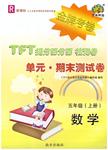题目内容
Doors and windows can’t keep them out; airport immigration officers can’t stop them and the Internet is a complete reproduction soil. They seem harmless in small doses, but large imports threaten Japan’s very uniqueness, say critics. “They are foreign words and they are infecting the Japanese language”.
“Sometimes I feel like I need a translator to understand my own language, ”says Yoko Fujimura with little anger, a 5-year-old Tokyo restaurant worker.“It’s becoming incomprehensible”.
It’s not only Japan who is on the defensive. Countries around th globe are wet through their hands over the rapid spread of American English. Coca?Cola,for example, is one of the most recognized terms on Earth.
It is made worse for Japan, however, by its unique writing system. The country writes all imported utterances(言论) except Chinese?in a different script called katakana (片假名). It is the only country to keep up such a difference. Katakana takes far more space to write than kanji?the core pictograph (象形文字) characters that the Japanese borrowed from China 1,500 years ago. Because it stands out, readers complain that sentences packed with foreign words start to look like extended strings of lights. As if that weren’t enough, katakana terms tend to get puzzling.
For example, digital camera first appears as degitaru kamera. Then they became the more ear?pleasing digi kamey. But kamey is also the Japanese word for turtle. “It’s very disappointing not knowing what young people are talking about,” says humorously Minoru Shiratori, a 53?year?old bus driver. “Sometimes I can’t tell if they’re discussing cameras or turtles.”
In a bid to stop the flood of katakana, the government has formed a Foreign Words Committee to find suitable Japanese replacements. The committee is slightly different from French?style language police, which try to support a law that forbids advertising in English. Rather, committee members and traditionalists hope a non?stop campaign of persuasion, gentle criticism and leadership by example can turn the tide.
12.According to the author, the reason why the Japanese is infectd greatly by English is .
A.that nothing can prevent it from entering into Japan
B.that English is the most recognized language in the world
C.that the government has not set up a special administration department to control this trend before it becomes popular in Japan
D.not clearly mentioned in this passage
13.By saying “counties around the globe are wet through their hands over the rapid spread of American English,”the author infers that .
A.even a restaurant worker in Japan may feel the English infection on Japanese
B.the flood of katakana has covered most of countries in the world
C.Coca?Cola is the most popuar on the earth and this product covers all the global market
D.many other countries are affected greatly by American English
14.According to the author, the last paragraph mainly deals with.
A.how French-style language police has prevented the infection of English
B.how Japanese Foreign Words Committee prevents the infection of foreign words
C.the suitable Japanese replacements
D.why committee members and traditionalists begin to declare a war against the infection of foreign words
15.Which conclusion can be drawn based on the opinions from the Japanese people (in paragraph 2 and 4 of this passage)?
A.The elders strongly advocates replacing the foreign words than young people.
B.All the people dislike speaking the foreign words, such as “digi kamey”.
C.They are so old that it is necessary to give some language assistance by a specialist.
D.People’s work determines the language they speak.
12-15 DDBA
解析:
12.D 文章在第一部分(第一、二、三段)中说明了日本语言被 外来英语“感染”的情况,以至于某位老先生需要请一位翻译来翻译自己的语言;第二部分(第四段)举例,从细节上说明了这种情况;然后最后一部分(第 五段)提出了日本人为改变这种情况采取的这种办法。对于产生这种情况的原因文章并未明确提到,所以选D。
五段)提出了日本人为改变这种情况采取的这种办法。对于产生这种情况的原因文章并未明确提到,所以选D。
13.D 通过上下文举的例子可以推断出,其他国家也受到美国英语的影响,比如全世界的人都知道英语单词Coc-Cola。所以选D。
14.B 参照题12的解释, 最后一段应当是解释Foreign Words Committee 的作用,所以选B。
15.A 从第二段和第四段两个老人所讲的话中可以看出,他们对日本语言目前的情况都比较理解。结合文章中所举的有关年轻人与digital camera 的例子,最有可能的推断就是:老年人比年轻人更支持换掉外来词。所以选A

 提分百分百检测卷单元期末测试卷系列答案
提分百分百检测卷单元期末测试卷系列答案